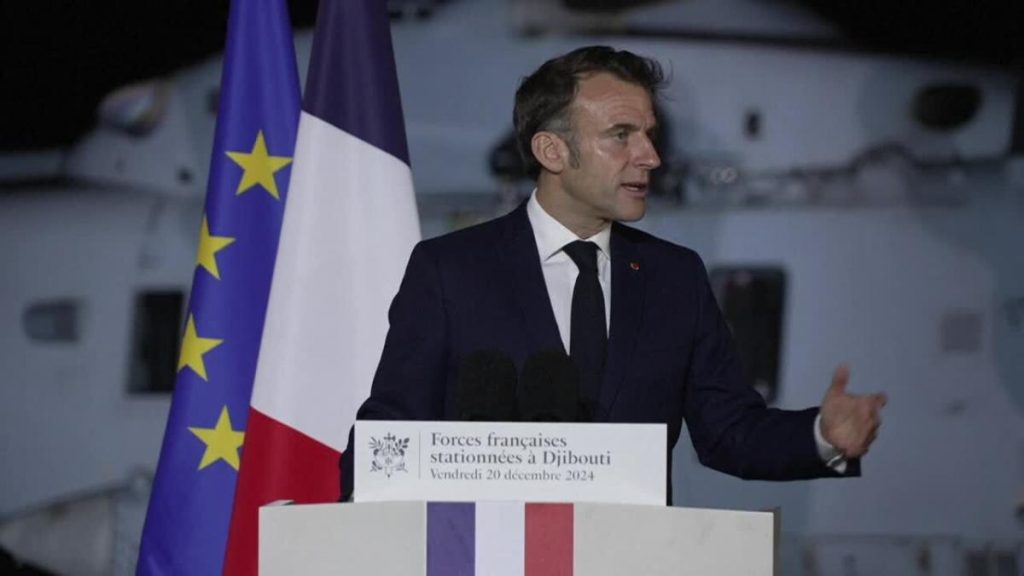French President Emmanuel Macron has suggested that France’s military base in Djibouti could take on a larger role despite shifting dynamics in Africa, following the withdrawal of French troops from several countries on the continent.
Speaking to French forces stationed in the Horn of Africa nation on Friday, Macron acknowledged that France’s military presence in Africa must adapt to changing political landscapes and public sentiment.
“Our role is changing in Africa because the world is changing in Africa, because public opinion is changing, because governments are changing,” Macron said.
His remarks came as France concluded troop withdrawals from Mali, Burkina Faso, Niger, and Chad—countries that have turned to Russia for military support after severing ties with the former colonial power.

Djibouti, located at the mouth of the Red Sea, has long been a strategic hub for France’s Indo-Pacific strategy, supporting freedom of navigation in the region.
The Djibouti base hosts 1,500 French troops, making it France’s largest foreign military presence and the only one unaffected by recent African withdrawals.
France’s military footprint in Africa has faced setbacks as countries such as Mali, Burkina Faso, and Niger have expelled French forces in favour of closer ties with Russia. Chad also recently ended its defence pact with Paris, prompting the withdrawal of 1,000 French troops.
Senegal’s president, Bassirou Diomaye Faye, has likewise called for France to close its military bases in his country.
Despite these setbacks, Macron highlighted Djibouti’s continued importance, pointing to its stability and strategic location near Yemen, a nation embroiled in civil war.
France and Djibouti renewed their defence cooperation treaty in July, with Paris paying rent for the base and providing airspace patrols. Macron’s comments suggest that the base may now play a broader role in supporting security efforts across Africa.
While France’s military footprint in Africa is shrinking, Djibouti could emerge as a central hub for future missions, reflecting Macron’s vision for a more flexible and responsive approach to regional challenges.


